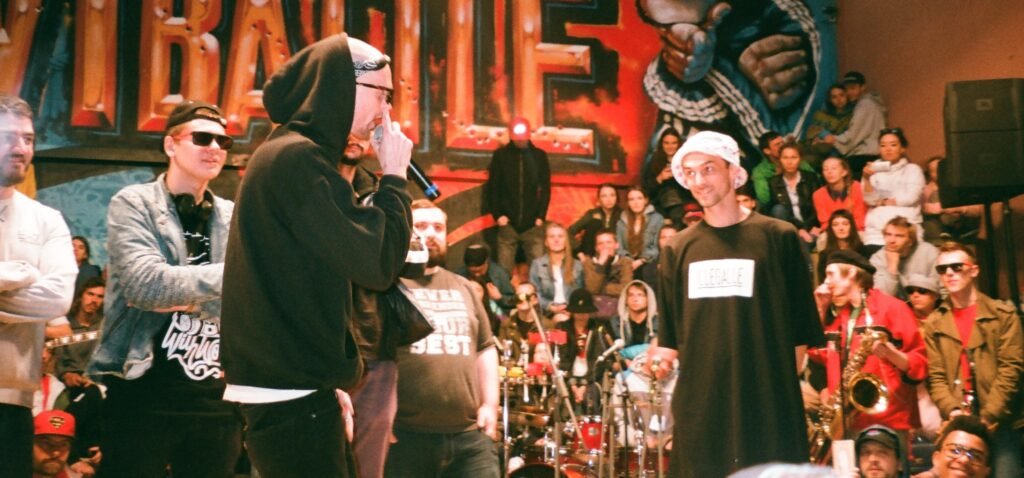Hip-hop, more than just a musical genre, represents a vibrant culture, a revolutionary movement, and a unique linguistic tapestry. Over the decades, hip-hop slang has not only evolved but has also shaped and mirrored societal, political, and musical shifts. Let’s delve deeper into the intricate evolution of hip-hop slang.
The Deep Roots of Rap Slang
The lexicon of hip-hop is a rich amalgamation of historical and cultural influences. A significant portion of the slang finds its roots in African American Vernacular English (AAVE). This linguistic style, born out of centuries of African American history and struggle, has given rise to alternative pronunciations, innovative word formations, and a vivid linguistic portrayal of urban narratives.
Pioneers and Their Linguistic Legacy
Certain artists have left an indelible mark on hip-hop vernacular. Harlem’s Lamont Coleman, better known as Big L, was a linguistic innovator, as showcased in his track “Ebonics,” where he meticulously decoded various hip-hop slang terms. Snoop Dogg, a West Coast legend, introduced the world to the “-izzle” suffix, a playful twist that turned mundane words into catchy hip-hop jargon.
A Deep Dive into the Hip-Hop Lexicon
- Bent: Beyond just being intoxicated, it’s a state of letting go of inhibitions.
- Biscuit: More than a gun, it represents a means of protection or power in a hostile environment.
- Cheese: Money, yes, but also a symbol of success and the hustle to achieve it.
- Dope boy: Not just a drug dealer, but often a figure looked upon with a mix of respect and caution in the community.
- Fly: An embodiment of the cool, effortless style that hip-hop celebrates.
- Ghost: Leaving, but also the art of disappearing to avoid trouble or responsibility.
- Hood: The epicentre of hip-hop culture, representing community, loyalty, and sometimes, territorial disputes.
- Ice: A display of wealth, success, and sometimes, excess.
- Marinate: A call to pause, reflect, and soak in the moment.
- Pig: A term reflecting the historically strained relationship between the police and the African American community.
- Tight: A seal of approval, indicating top-notch quality or style.
Brands in Rhymes: The Commercial Influence
Hip-hop’s relationship with brands is multifaceted. While some references are endorsements, others are critiques of consumerism.
- Benz/Benzo: A symbol of luxury and making it big.
- Beamer: Representing a blend of style and performance.
- Cad/Caddy/’Lac: An American classic, often linked to cruising and street cred.
- Timbs: Rugged boots symbolising the gritty nature of street life.
- Rolly: A sign of opulence, success, and sometimes, the fleeting nature of fame.
Numbers Game: The Numeric Lingo of Hip-Hop
Numbers in hip-hop slang often carry coded meanings, serving as shorthand for various concepts:
- 187: Beyond homicide, it’s a warning or threat.
- 24/7: The relentless hustle and grind.
- 411: Information, gossip, or the latest scoop.
- 420: Cannabis culture and the broader debate around its legalisation
- 5-0: The ever-present theme of surveillance and the complex relationship with law enforcement.
- 730: A nod to the unpredictability of street life and the characters one encounters.
The Global Footprint of Hip-Hop Slang
As hip-hop transcended borders, its slang began influencing languages and cultures worldwide. From Tokyo’s backstreets to London’s underground clubs, hip-hop slang has been adopted, adapted, and localised, creating a global linguistic phenomenon.
Conclusion
The evolution of hip-hop slang is more than just a linguistic journey. It’s a reflection of societal changes, political movements, and the ever-evolving ethos of the hip-hop community. As the beats continue to drop and the rhymes flow, the language of hip-hop will continue its dynamic dance, capturing the pulse of the streets and the rhythm of the times.
You might also like:


